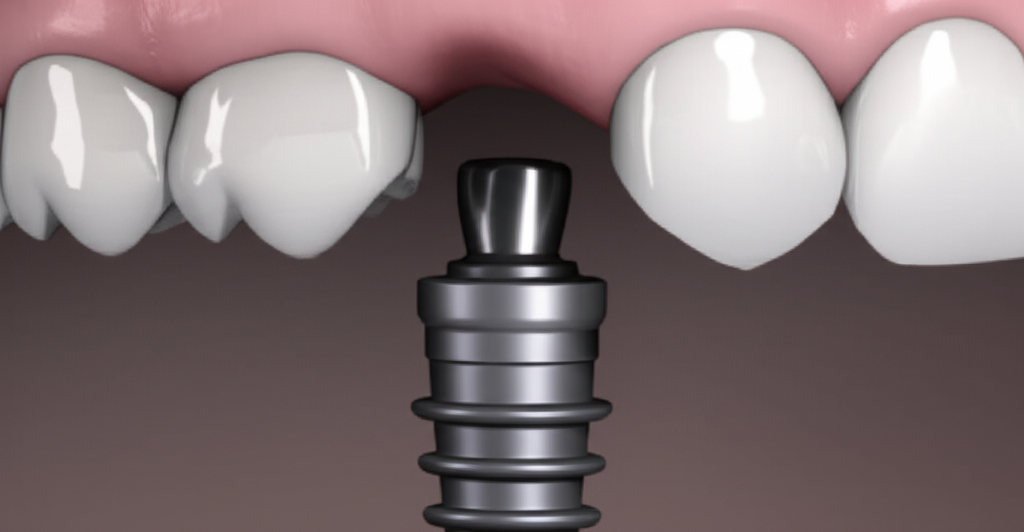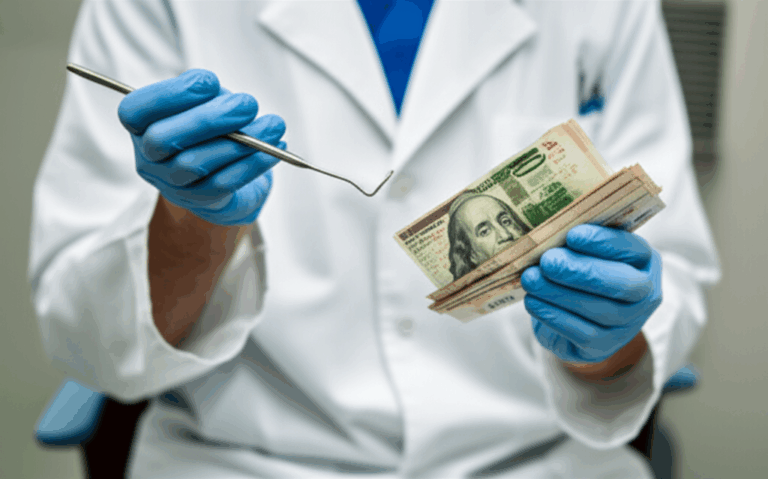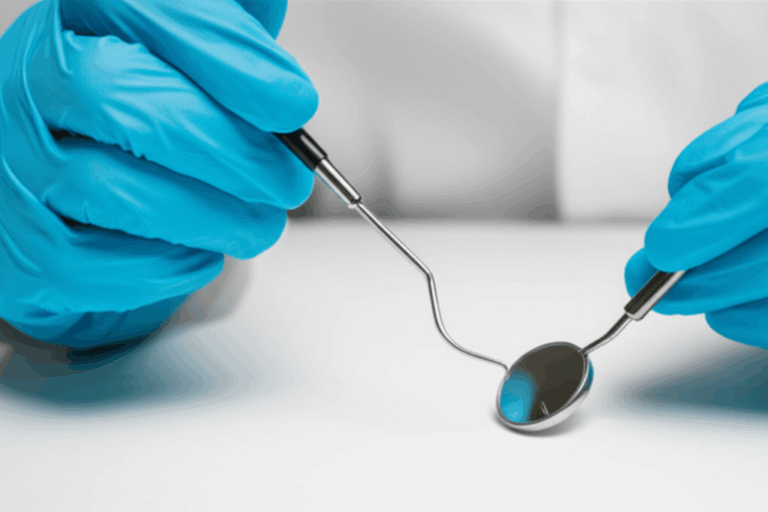
What Are the Signs of a Failing Dental Implant? Recognizing Complications Early
Dental implants are a great way to fix missing teeth, giving you your smile and confidence back. But, like anything, sometimes problems happen. Every year, thousands of people get dental implants, and most of them have no issues—but what if yours starts feeling weird? If you notice pain, swelling, or your tooth just doesn’t feel right, you aren’t alone. In this guide, I’ll show you common signs of a failing dental implant, explain why this matters, and tell you what to do next. It’s important to catch problems early, so you can avoid bigger troubles later on.
Table of Contents
Why Do Dental Implants Fail?
Dental implants are like small metal screws that stand in for your tooth root. When they work, you won’t feel them at all. But sometimes, your body doesn’t accept them—or the bone can’t bond to them like it should. Think about trying to plant a tree in bad dirt. Even if the plant is healthy, it won’t grow well in poor ground.
Implants can fail quickly—sometimes as soon as a week—or it can happen years later. Knowing the signs of implant failure helps you act fast to save your tooth.
What Does Normal Healing Look Like?
Before you get worried, let’s talk about what is normal after implant surgery, especially in the first few weeks.
- Mild pain and swelling are normal.
- Some bleeding and tenderness can last for a day or two.
- Chewing may feel strange at first.
But all these things should get better, not worse, as days go by. If things like pain, swelling, or a weird feeling get worse, it might be a problem.
Table: What’s Normal vs. What’s Not
| Symptom | Normal Healing | Warning Sign |
|---|---|---|
| Pain | Gets better in 3-5 days | Gets worse or comes back |
| Swelling | Gets better in a week | Stays or gets bigger |
| Bleeding | Stops after first day | Lasts longer than 2-3 days |
| Taste/Smell | No change | Bad taste or smell |
| Loose Feeling | No | Moves or feels wobbly |
Early Signs of Dental Implant Failure
1. Ongoing Pain or Soreness
The first thing that bothers most people is pain that doesn’t go away after a week or keeps getting stronger. After any surgery, you’ll have some soreness. But if you need pain pills day after day, something is wrong.
You might notice a deep throbbing, sharp jabs when you chew, or a dull ache even when you’re not eating. It’s not the pain right after surgery—it’s lasting and bothersome.
2. Swelling and Redness
Some swelling is expected, but if your face is still puffy, red, or feels warm days after getting your implant, you could have a problem. The gums might look swollen or glossy, and touching them may hurt.
Swelling is a bigger worry if you see redness or notice any pus. Your body is trying to tell you something’s not right.
3. Pus or Bad Taste
If you taste something gross, bitter, or smell something strange from the area, you might have an infection. Pus, a weird taste, or a strange smell are all loud warning signs.
Watch for yellow or white liquid coming out near your implant. If you taste metal or something nasty, call your dentist.
4. Loose Implant
If your implant shakes, moves, or feels loose—even just a little—trouble is probably starting. Implants should never move. Not even after healing.
This often means the implant didn’t bond to the bone. Sometimes you feel it with your tongue or when you’re eating.
5. Numbness or Tingling
If you feel your lip, chin, or tongue is numb or tingly after surgery, you might have nerve trouble.
Numbness that lasts longer than the numb feeling from the dentist is not normal. Tell your dentist quickly.
Late Signs of Dental Implant Failure
1. Gum Pulling Back
After a while, the gums can pull away from the implant, showing the metal part or what’s underneath. The area might look longer, the gum gets thinner, or you see the lines of the implant.
This makes it easier for infection to start and makes the implant weaker.
2. Losing Bone Around the Implant
You may have heard about peri-implantitis—it’s just a fancy way of saying infection and bone loss near the implant. X-rays show bone loss, but you might feel pain or see the fake tooth looking longer.
The gums around these sites can bleed or get puffy. If nothing is done, the implant can fall out.
3. Loose Implant After Years
Even years later, if an implant gets loose, that’s bad news. This usually happens because of bone loss, gum disease, or pieces breaking.
If you can wiggle the implant with your tongue or notice movement while eating, don’t wait—see your dentist.
4. Bad Breath or Taste That Stays
Sometimes people notice a weird taste or smell that sticks around the implant. That’s probably germs hiding under the gum. If brushing or mouthwash doesn’t fix it, you could have an infection.
5. Cracked or Broken Parts
Sometimes, the problem is a broken post, loose screw, or cracked crown from biting or accidents. You’ll have sharp pain, hear a clicking sound, or notice the tooth looks different.
What Causes Dental Implants to Fail?
1. Bone Doesn’t Grow to the Implant
Sometimes the bone just can’t bond to the metal post. Not enough bone, uncontrolled diabetes, or habits like smoking get in the way.
2. Infection (Peri-implantitis)
If you don’t keep your mouth clean or had gum disease before, germs can get under the gums near the implant. This causes infection, breaking down the bone and gum until the implant becomes loose.
3. Problems with the Parts
Implants in the wrong spot, biting too hard, or grinding your teeth can cause the implant or pieces to break. Even tough materials can only take so much.
4. Health Issues
Things like diabetes, immune disease, weak bones, chemo, or certain medicines (like steroids) can slow healing, so implants don’t bond like they should.
5. Accidents
A bump on your face, a fall, or sports injury can push the implant out or break off pieces.
Who Is at Risk for Implant Failure?
Anyone can have an implant fail, but some people have a higher chance. These risk factors are common:
- Smoking: Smokers are 2-3 times more likely to have trouble.
- Diabetes: Poorly controlled blood sugar makes healing slow.
- Poor brushing/flossing: Keeping teeth and gums clean is important.
- History of gum disease: It can come back if not cared for.
- Not seeing the dentist often: Problems might get missed.
- Health problems: Cancer treatment, weak bones, or immune diseases.
Knowing your risk helps you talk to your dentist and watch for problems sooner.
What Should You Do If You Suspect Failure?
Notice any warning signs like pain, swelling, bad taste, or looseness? Here’s what not to do: Don’t hope it goes away! Waiting makes things worse and harder to fix.
1. Don’t Wait
Act fast. Even if you’re not sure, calling your dentist is always smart. Catching a problem early means it might be easy to fix.
2. Call Your Dentist or Oral Surgeon
Tell them what you feel: pain, swelling, loose tooth, weird taste, or pus? Be honest. They’ll probably ask you to come in for an exam and take pictures of your mouth.
Early help can save your implant and your peace of mind!
3. Don’t Try to Fix It Yourself
Don’t pick at the area or try to fix it on your own. Home remedies can make things worse. Just rinse gently, don’t chew on that side, and wait for the dental visit.
If you need expert help, implant dental laboratory services have great tools and materials for repairs or new implants.
How Are Failing Implants Diagnosed and Treated?
1. How Dentists Find the Problem
Your dentist will probably:
- Check the area for swelling, pus, or movement.
- Probe to see if there are gum pockets or bleeding.
- Take X-rays or scans to look at the bone and implant position.
They may use better tech from a digital dental lab for clear pictures.
2. How Dentists Fix It
If the problem is small and new, sometimes a good cleaning or medicine works. Deep cleaning under the gums can stop infection.
For bigger problems, the dentist may:
- Add bone or gum (bone graft or gum graft)
- Fix or swap pieces (screw or crown)
- Take the implant out if it can’t be fixed, and put a new one in later
Using a high-quality crown and bridge lab helps make new teeth that fit well.
Ways to Prevent Implant Failure
- Keep Your Mouth Clean: Brush and floss, and use special brushes around implants.
- See Your Dentist Often: Cleanings and check-ups can catch problems early.
- Watch Risk Factors: Quit smoking, control diabetes, and wear a mouth guard for grinding teeth.
- Pick an Experienced Specialist: Not all dental labs are the same. Choose people with lots of training and good tools.
- Eat and Chew Carefully: Don’t eat really hard foods or use your teeth as tools.
How to Choose the Right Dental Lab and Specialist
Both your dentist and the dental lab matter a lot. When you need a fix or replacement, experience is important.
Look for:
- Dentists or surgeons who know a lot about implants.
- Labs that use up-to-date tech, like a dental ceramics lab, for natural, strong teeth.
- Good reviews and happy customers.
Remember, working together with your dentist and the lab makes your new tooth last longer and feel better.
FAQs: Failing Dental Implants
Q: Can a failing dental implant be fixed?
A: Sometimes, yes. If found early, cleaning, medicine, or small surgery might save it. If bone loss is bad or it doesn’t heal right, it might need to come out and be replaced.
Q: Do implants fail a lot?
A: Not really. They work most of the time—about 95-98%. But failure can happen, especially if you have health issues, smoke, or have trouble keeping your mouth clean.
Q: How long do dental implants last?
A: Many work for 10-20 years or even longer with good care. Most problems happen early—but they can also come years later if there’s infection or bone loss.
Q: What does a failed dental implant feel like?
A: Loose, painful, swollen, or with a bad taste or smell. Always ask your dentist if something feels wrong.
For more answers, check this dental implant resource.
Key Takeaways
- Failing dental implants can hurt, swell, feel loose, or taste or smell bad.
- Healing should get easier—not harder—over time.
- Most problems show up early, but can happen years later too.
- Smoking, diabetes, poor cleaning, and skipping dental visits make failing more likely.
- Don’t ignore pain or weird feelings. Getting help early can save the implant!
- Go to your dentist if you think there’s a problem—don’t try to fix it yourself.
- Pick skilled dentists and labs for the best results.
- Keep brushing, flossing, and going to your check-ups for a healthy, happy smile.
Keep your smile safe by staying aware, acting quickly, and choosing the right dental experts!








